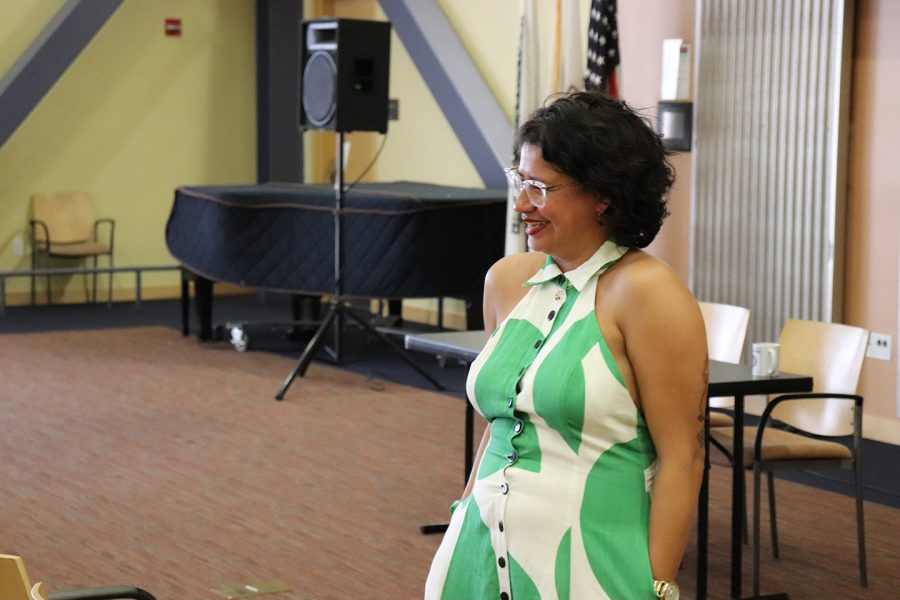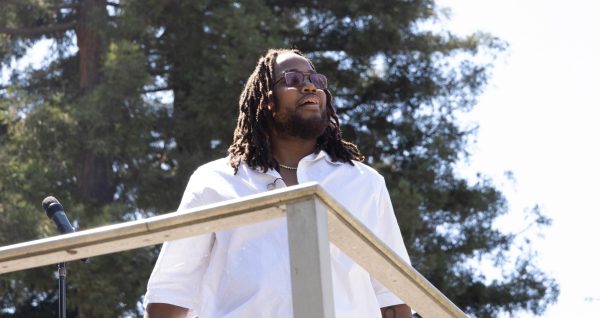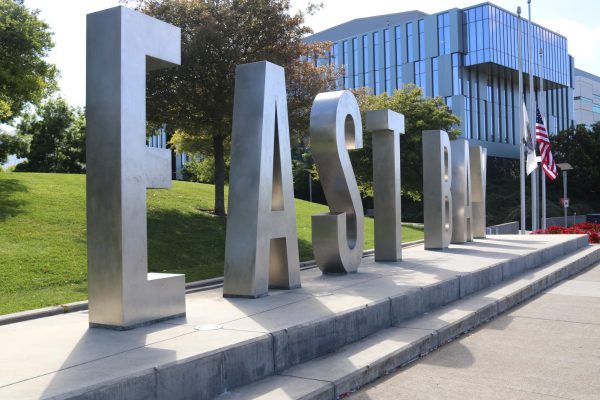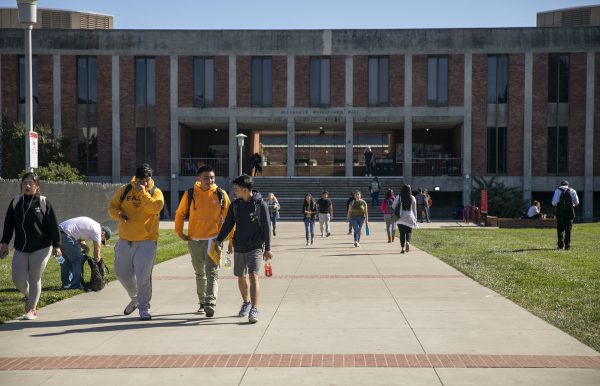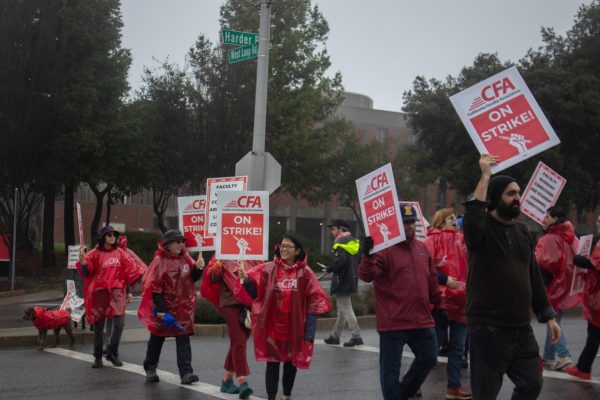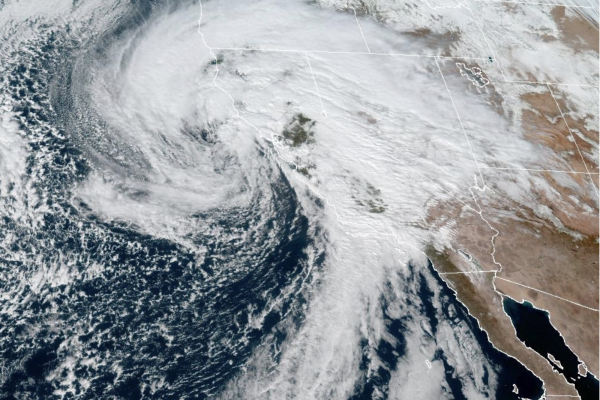Journalist Yessenia Funes opens CSUEB’s Earth Week
May 10, 2018
Yessenia Funes, an environmental journalist for the blog Earther, gave a keynote speech to kick off Earth Week at CSUEB, April 23 through 27. She gave an informative and poignant presentation in the Multipurpose Room in the New University Union about environmental racism, as well as other forms of environmental injustice.
Environmental racism is the process of systematic subjugation by governments and corporations against minority groups. An example of this is when power plants, oil refineries and freeways are constructed near low-income neighborhoods and communities of color. Since factories and freeways cause higher concentrations of pollution, the citizens who are forced to live near these industrial areas are exposed. Upper-class and predominantly white neighborhoods, on the other hand, do not experience this. Therefore it is a form of “environmental racism.”
Funes explained that sections of land that have been contaminated with toxic waste, known as Superfund sites, also tend to be located near communities of color and low-income areas. When environmental disasters occur, the areas surrounding the Superfund Sites suffer the most.
“Studies show that climate change affects communities of color first and worst,” Funes told The Pioneer. “We saw that with Hurricane Harvey, the communities closest to the Superfund Sites are low-income communities of color. They had to deal with the fallout of toxic pollution spewing out of the Superfund sites.”
During her presentation, Funes highlighted the widespread damage in Puerto Rico from Hurricane Maria as an example of environmental racism. She reminded attendees that just last month the entire island lost power once again, almost immediately restoring it for 70 percent of its citizens.
Funes visited Puerto Rico recently to report on the damage caused by the storm, and how its citizens are enduring. She showed attendees a series of pictures from her trip, which painted a sobering portrait for those who were unaware of the island’s current state of emergency.
When asked what can be done fight back against climate change and environmental racism, Funes urged attendees at the seminar to get involved at a local level to fight the effects of climate change.
“I think on an individual level, it’s important to engage locally,” said Funes. “It’s important to engage with organizations that are outside of the environmental movement, be it with Black Lives Matter advocates or immigration advocates, engaging with those communities can also better the environmental cause, because it’s all about intersectional resistance.”
After her presentation, Funes took a few questions from the audience. One student asked how to talk about the issues of climate change and environmental racism to people, since many find it to be an uncomfortable topic.
“Talking about these issues can definitely be uncomfortable,” Funes agreed. “But you know what? Screw your comfort zone, man.”
Funes also emphasized the need to remain positive in order to help curb the effects of climate change.
“I think it’s really easy to be jaded,” she told The Pioneer. “Especially if you’re like me and you write about this every single day, it’s really easy to feel pessimistic about it. But there’s a piece of you that has to hold onto hope, because if there’s no hope, then why even do this?”
When asked about possible solutions, Funes suggested that climate literacy should be taught in schools.
“Whatever school my future kids go to better have some kind of environmental program,” she joked.




